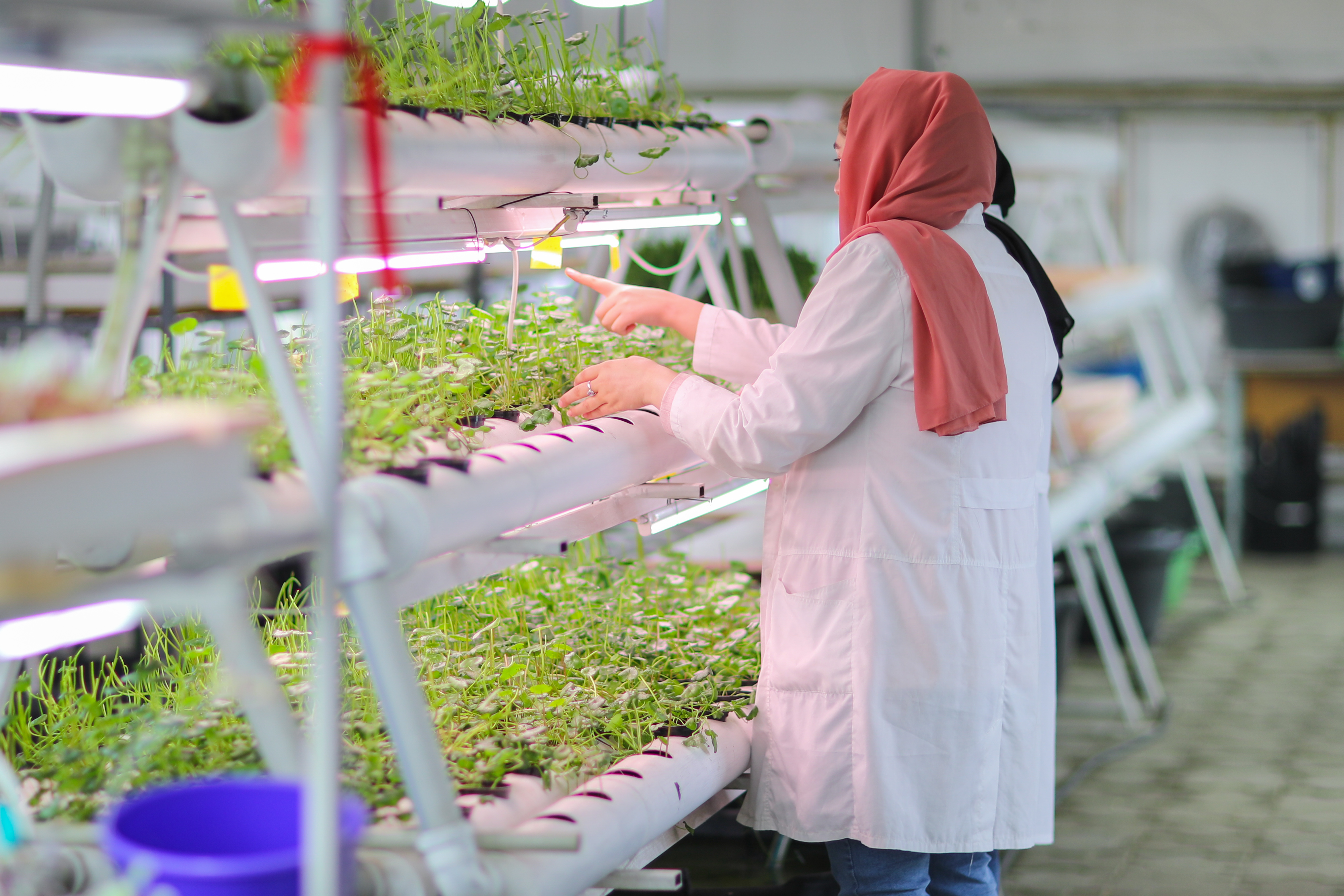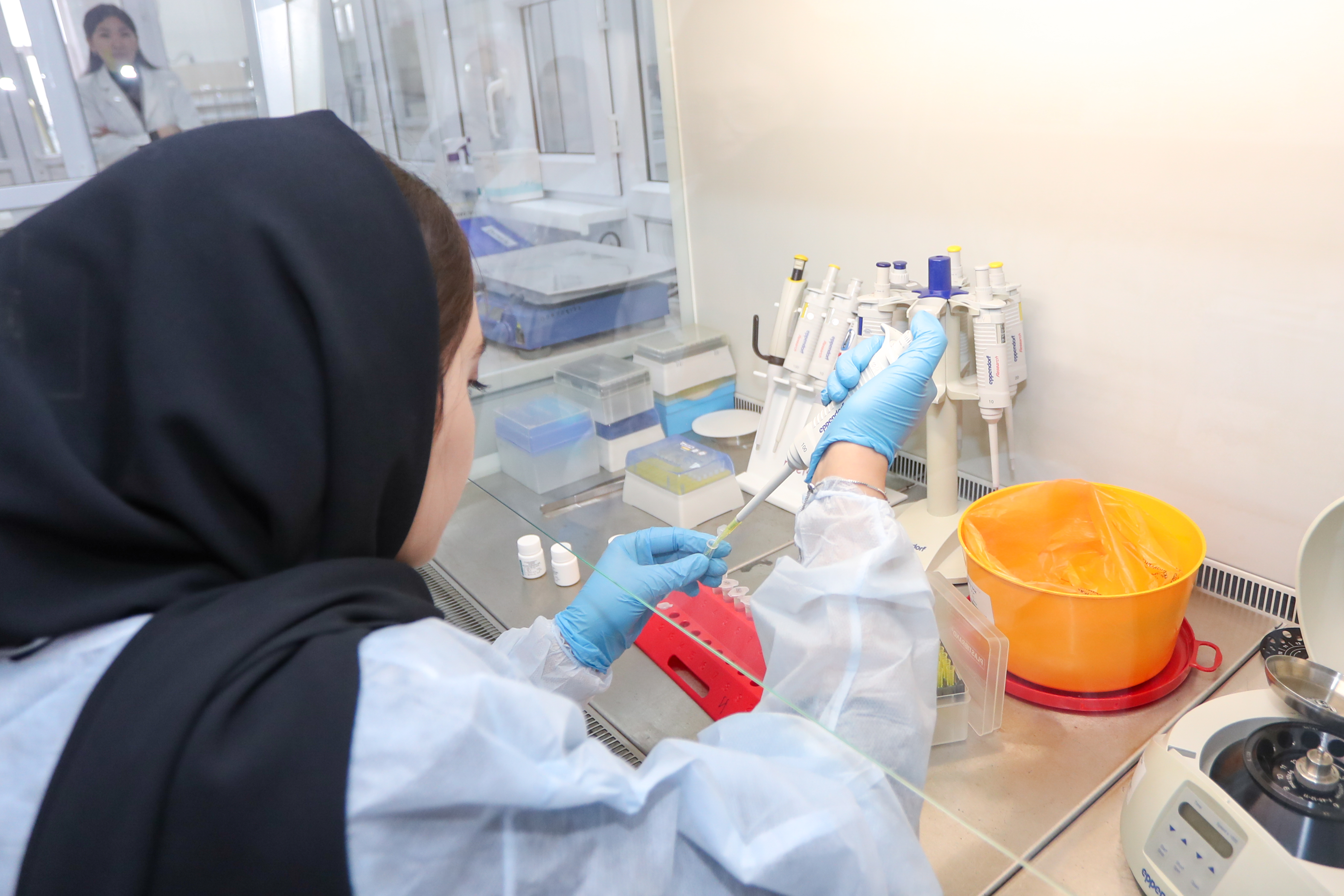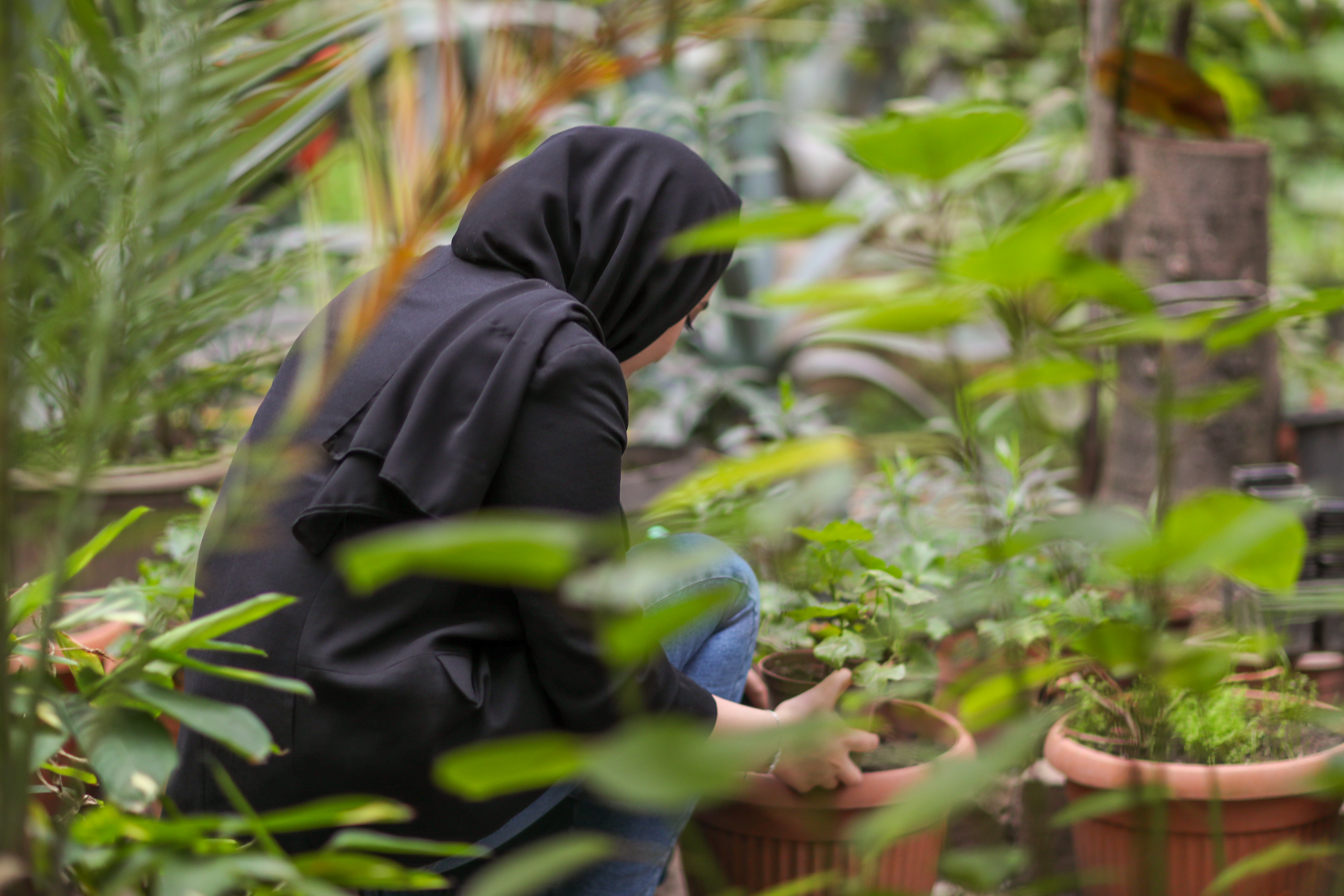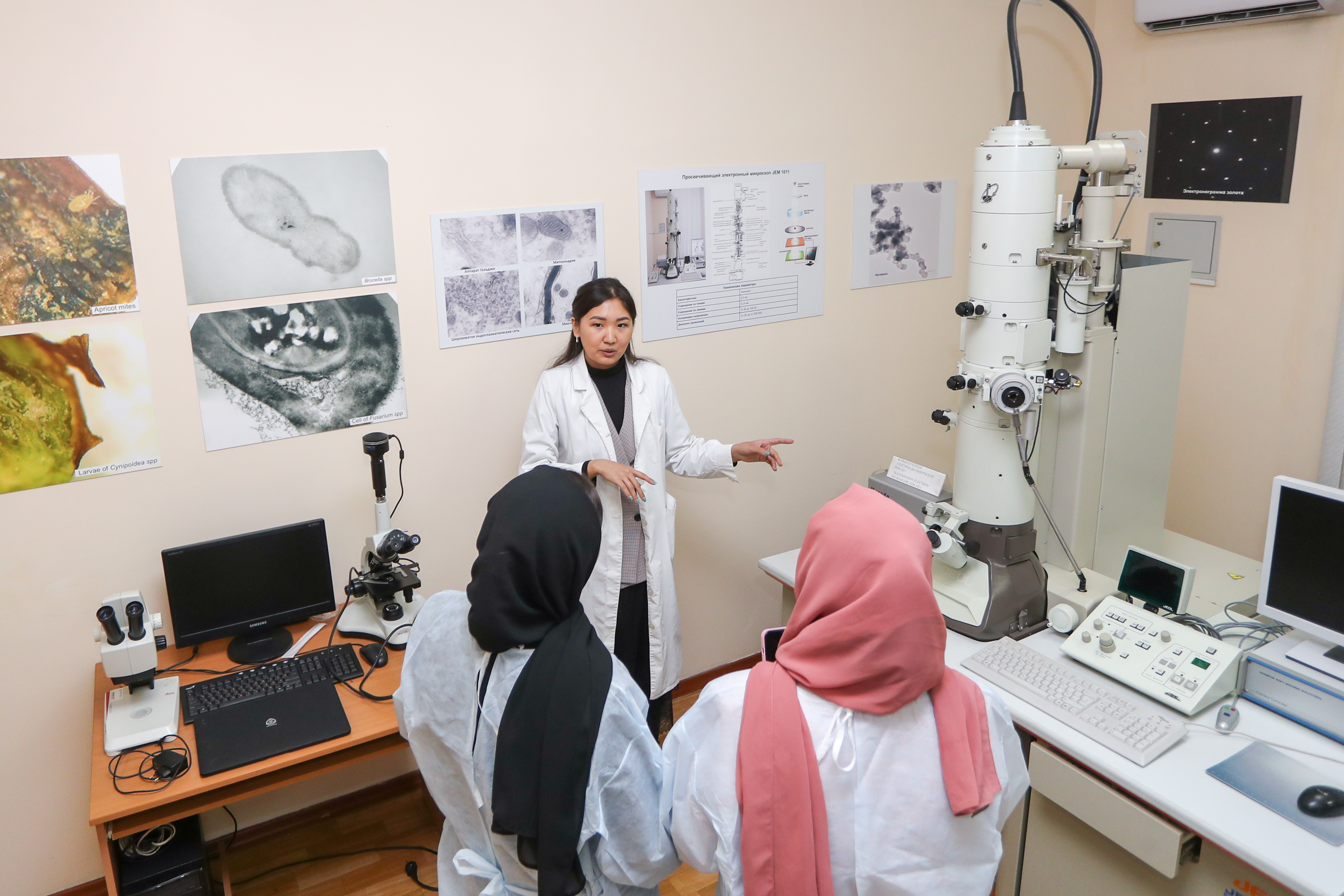EU scholarships for Afghan women in Central Asia open up new opportunities.
A contingent of hope against a darkened landscape
October 27, 2022

An EU-funded project has enabled Afghan graduates to studying agroscience at Kazak and Uzbek universities.
In 2019 Fatema, Beheshta and Mursal, three Afghan graduates who had been chosen to study agrosciences at Kazak and Uzbek universities as part of an EU-funded scholarship programme, had just arrived in Almaty and Tashkent. They were filled with hope, expecting to return home to a country of increasing opportunities once they had completed their training. Instead the rollback of economic and educational opportunities for girls and women in Afghanistan means an uncertain future.
Fatema has a BA in soil science and irrigation from Kabul University. She is studying for a Master’s in agrobiology at Tashkent’s State Agrarian University.
She remembers recent days when university education was open to women in Afghanistan:
“At school my favourite subjects were biology and chemistry. When my brother was studying agriculture at Kabul University, I started reading his books. It was a hard task. I was asking many questions. At some point my brother said: ‘If you like it that much, go to university and study yourself’. At university I started to understand that when farming the land we did not call into question many traditional practices.”

Some 155 Afghan women are studying finance, mining, agriculture, marketing, architecture and computer science at universities in Central Asia.
Agriculture is the largest sector of the Afghan economy. It employs three out of five workers. However, labour-intensive and traditional ways of farming are widespread. Most workers do not have any formal education, and many are illiterate, a situation Fatema would like to change.
“In my country lack of facilities is the main issue. Afghanistan has good climate, good conditions for agriculture. But most farmers do not have facilities and knowledge about plant science, land management, soil and water management. They just work. The older generation thinks that everyone can be a farmer. All that scientific data is not regarded as knowledge, as something of great value. The prevailing mindset is to repeat what previous generations did. If your father did it that way, you should too.
“I started telling my father, ‘Don’t do this, do that. Why are you doing this?’ He said that he didn’t have an education, and since I had. I should teach him. I liked his attitude. If you have land and you are educated, then it is gold in your hand.”

The EU-funded project represents the international community’s investment in the significant potential of Afghan women.
Beheshta is studying for a BA in plant science and technology at the Kazakh National Agrarian University in Almaty.
“My field is part of agrotechnology. Plant science and technology is all about plant growth, reproduction, evolution, adaption. My field is focused on developing new technologies that will help feed the world’s population.”
More than half of Afghans are going hungry because of continuing conflict, the COVID-19 pandemic, a dire economic situation, and a severe drought.
Improving agricultural productivity has the potential to improving the lives of millions of Afghans. Although Beheshta’s professional future in Afghanistan seems uncertain, she still hopes that someday her knowledge and experience will be useful for her country.
“I want to become a professional in the field of agriculture. After finishing my studies, I want to come back to my country and help the farmers, to bring about change. Our agriculture needs technologies that are used in other countries. With the help of some NGOs and perhaps of the government I want to help introduce new technologies and machines to farmers, to help farming reach a new level.”

Increasing agricultural productivity through science and technology has the potential to improve the lives of millions of Afghans.
Mursal came to Almaty in 2019. Her father, an irrigation system engineer, inspired her career choice.
“When I saw how he worked with people, people who don’t know what they will eat the next day [and] just work to be able to provide food for one day, I thought what he was doing was very cool.”
Mursal says the women who play a key role in the agricultural sector in remote and isolated rural areas can help Afghans to feed themselves.
“Even [an] illiterate woman can cultivate plants in her yard, we could share our knowledge with them, train them, explain different ways of how to plant, breed and pollinate. In Afghanistan, women who live in districts, in villages, have big yards around their houses so they could use this knowledge to cultivate their own vegetables. It is a healthy, organic way of production. Armed with this knowledge ,a woman could help her family. And then they could sell the products in the market.”
However, Mursal is not sure what future awaits her after graduation.
“I wanted to do what my father did. To share knowledge, to help farmers. I had a dream. But now I’m not sure that my vision [will] be realized.”
Fatema, Beheshta and Mursal are part of a contingent of hope, small in numbers but big in ambition, that represents the international community’s investment in the significant potential of Afghan women.
Overall, 155 young women from Afghanistan will receive an education in Central Asian universities by 2027 under the scholarship programme financed by the European Union and run by UNDP. The first phase of the project began in 2019 and will end in 2025. The second phase started in 2021 will run until 2027. The students study finance, mining, agriculture, marketing, architecture and computer science
***
This story was produced with the financial support of the European Union. Its content is the sole responsibility of UNDP Kazakhstan and does not necessarily reflect the views of the European Union

 Locations
Locations



